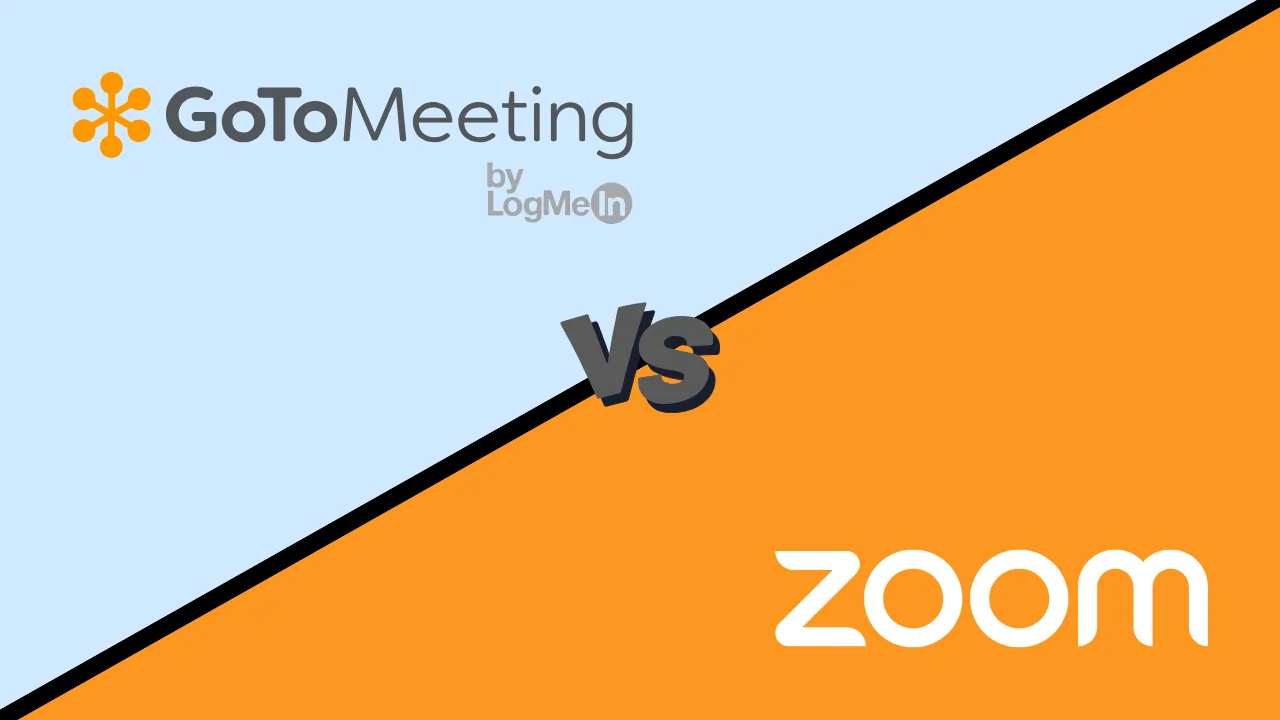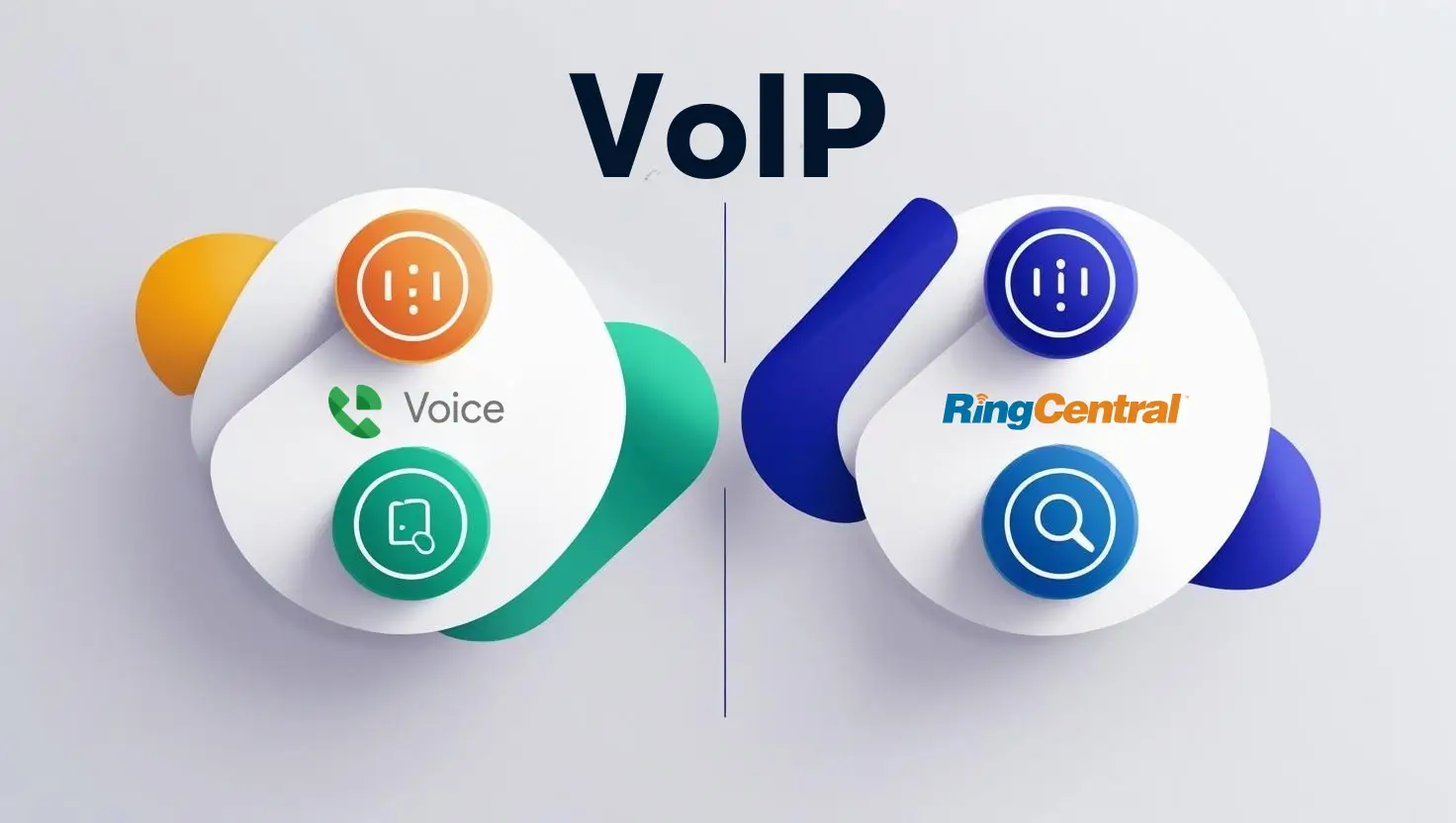Best Business Phone Systems for SMBs in 2026
Last updated: February 2026
A modern business phone system for an SMB is an essential tool for managing communications professionally and efficiently. Unlike traditional landlines, today's top solutions are cloud-based, using Voice over Internet Protocol (VoIP) technology to deliver powerful features at an affordable price. These systems are designed to help small businesses compete with larger companies by improving customer interactions, supporting remote teams, and scaling easily as the business grows.
- Try for free
- Cloud system with simple set-up
- Work from any device
- 30-day money back guarantee
- Making cloud communication easier
- All-in-one solution suitable to different industries
- Save as much as 50% on your costs
- Free phone number porting
- Unlimited US, Canada, Mexico & Puerto Rico calls
- 14-day free trial, Cancel anytime
- Unlimited calls & texts on any device
- Low-cost international calling
- 7-day free trial
- No hardware purchase required to setup
- Keep personal/business calls separate
- Flexible communications options
- Setup and switching is simple
- Mobile and desktop apps
- First month free
- World-class customer support
- Suitable for all business types and sizes
What is a Business Phone System for a Small Business?
A VoIP phone system, also known as a business VoIP service or business VoIP system, for a small business is a communications solution that uses the internet (VoIP) to manage all inbound and outbound calls. As a small business phone solution, it offers small business VoIP as a modern alternative to traditional phone lines. VoIP technology utilizes the Internet Protocol to transmit calls over the Internet instead of relying on traditional phone lines, providing a more flexible and scalable platform. It replaces traditional analog phone lines with a cloud-hosted platform, offering unified communications that integrate voice, video, messaging, and more. Choosing the right VoIP provider and VoIP service is essential for SMBs to ensure reliable and feature-rich communication.
For SMBs, this means access to enterprise-grade features without the high cost or complex hardware. Key capabilities include:
- Professional Call Management: Features like an auto-attendant and call routing present a polished image to customers.
- Unified Communications: A single platform for calls, video meetings, and team chat streamlines workflow.
- Remote & Hybrid Work: Employees can use the business phone number on any computer or mobile device, including their cell phone or mobile device, from anywhere with an internet connection. Users can make phone calls and receive phone calls from any device.
How Much Does a Business Phone System Cost for an SMB?
The cost of a business phone system varies based on the number of users, required features, and the number of phone extensions needed. Many business VoIP services and business VoIP solutions bill per phone extension, so the total number of extensions can affect the overall price. Most voip providers offer tiered pricing, making it affordable for businesses of any size. An existing internet connection is required for all VoIP services.
| Plan Tier | Average Price Range (per user/month) | Best For | Common Features Included |
| Basic / Essentials | $15 – $25 | Startups and very small teams with basic call needs. | Unlimited domestic calling, unlimited calling, unlimited calls, international calls, a business phone number, phone numbers, virtual phone numbers, voicemail-to-email, voicemail messages, and a mobile app. |
| Standard / Pro | $25 – $35 | Growing businesses that need more advanced features. | Everything in Basic, plus auto-attendant, video conferencing, call recording, integrations (e.g., Google, Microsoft), voicemail transcription, and enhanced voicemail messages. |
| Advanced / Enterprise | $35 – $50+ | Businesses requiring analytics, CRM integrations, and call center tools. |
Everything in Standard, plus advanced call analytics, CRM integrations (Salesforce, Zendesk), developer APIs, and expanded number management for business phone numbers and virtual phone numbers. |
Additional Costs to Consider:
-
Hardware: IP desk phones can range from $50 to $500 per device. Some businesses may still use an office phone or traditional landline phones as part of their communication setup, but most modern systems now rely on a VoIP phone service instead. Many VoIP systems work with existing phones or through software on computers and mobiles (softphones).
-
Setup/Porting Fees: Some providers may charge a one-time fee to set up the system or transfer your existing phone number.
Why You Can Trust the Expertise of Sonary
At Sonary, we are committed to providing accurate and trustworthy information to help you make informed decisions. Our research process is meticulous, transparent, and guided by a dedication to maintaining the highest standards of integrity.
Unlike many other review platforms, we conduct in-depth evaluations of the software and services we feature. Our expert team tests and actively uses the tools we review to understand their features, performance, and value comprehensively. Our assessments are based on real-world use, giving you insights beyond surface-level descriptions.
Our research methodology includes analyzing key consumer factors such as pricing, functionality, device usability, scalability, customer support quality, and unique industry-specific features.
This hands-on approach and dedication to transparency mean you can trust Sonary to deliver regular, up-to-date content and recommendations that are well-researched and genuinely helpful for your business needs.
Best VoIP Systems for SMB
1. RingCentral
A powerful and highly scalable market leader, RingCentral offers an extensive set of features and integrations. Its platform is exceptionally reliable and suitable for businesses of all sizes, from solo entrepreneurs to large enterprises.






Features
General Features
Devices
Calling
Advanced Calling
Pros & Cons
Pros
Cons
- Best for: Scalability and businesses that need robust features and seamless integrations with other software (like Salesforce, Google Workspace, and Microsoft 365).
- Key Features: Advanced Call Management, High-Quality Video Conferencing, Team Messaging & Collaboration, Extensive App Integrations (300+).
2. Nextiva
Nextiva is a unified communications platform that combines a robust phone system with video, team chat, and customer management tools. It’s known for its outstanding reliability and award-winning customer support.






Features
General Features
Devices
Calling
Advanced Calling
Pros & Cons
Pros
Cons
- Best for: Businesses seeking an all-in-one communication and customer engagement solution.
- Key Features: Unlimited Calling, Advanced Auto-Attendant, Call Analytics, Integrated CRM, HD Video Conferencing.
3. Ooma Office
Ooma Office is an affordable and user-friendly VoIP solution designed specifically for small businesses. It offers a straightforward setup and all the essential features an SMB needs to sound professional without a high price tag.






Features
General Features
Devices
Calling
Advanced Calling
Pros & Cons
Pros
Cons
- Best for: Budget-conscious startups and small businesses needing reliable, essential phone features.
- Key Features: Virtual Receptionist, Mobile App, Conference Calling, a Business Phone Number, and a Physical Desk Phone (included in some plans).
4. GoTo Connect
GoTo Connect is a dependable and feature-rich system that combines VoIP calling with the powerful GoTo Meeting video conferencing platform. It’s an excellent all-in-one solution for calls, meetings, and messaging.






Features
General Features
Devices
Calling
Advanced Calling
Pros & Cons
Pros
Cons
- Best for: Hybrid or remote teams that rely heavily on both phone calls and high-quality video meetings.
- Key Features: Cloud PBX Features, HD Video Conferencing, Advanced Call Routing, Visual Dial Plan Editor, International Calling Plans.
Side-by-Side Comparison






Core
Pros
- Rich selection of features
- Thorough integrations with other apps
- Easily manage international remote teams
Cons
- For larger implementations it can get expensive
- The number of features can be overwhelming






Core
Pros
- Always monitoring Call and network quality
- Paperless faxing
- HD video conferencing
Cons
- No deep integration
- Need very faster internet connection






Ooma Office
Pros
- Includes most telephony features customers need
- Cost is quite competitive
- Has a flexible configuration
Cons
- User reports of lower than expected call quality
- Backend navigation may not be as intuitive as required
Key Benefits of a Modern Phone System for Small Businesses
Upgrading to a VoIP business phone system offers tangible advantages that help SMBs operate more effectively.
- Significant Cost Reduction
Cloud-based phone systems eliminate the need for expensive on-premise hardware and maintenance. Bundled plans often include unlimited long-distance and international calling at a fraction of the cost of traditional carriers. - Enhanced Professional Image
Features like a professional greeting with an auto-attendant (virtual receptionist), custom hold music, and advanced call routing ensure callers have a seamless experience, making your small business sound like a large, established enterprise. Advanced systems can also efficiently route calls and manage calls, including call forwarding to the right team members, so customers always reach the appropriate contact. - Scalability and Remote Work Flexibility
A VoIP system grows with you. Adding a new employee is as simple as adding a user to your online account. This flexibility is crucial for supporting remote and hybrid teams, allowing employees to stay connected using the business line from their mobile devices or laptops. Users can access the system via a desktop app, and the experience is seamless across both desktop and mobile devices. - Powerful Communication Features
Access a suite of tools that improve productivity. Voicemail-to-email transcription, conference calling, voice calls, voice calling, video calls, video calling, screen sharing, team messaging, and CRM integration automate tasks and provide valuable data to improve customer service. Call recordings are available for training and compliance purposes. Internal and external communications are unified on one platform, and advanced call management features help you manage calls efficiently.
For businesses with advanced needs, contact center solutions and unlimited video conferencing are also available.
Must-Have Features in a Phone System for Small Businesses
When comparing providers, focus on the features that will have the biggest impact on your daily operations. The best VoIP phone systems and best VoIP solutions offer a comprehensive set of features for SMBs, including advanced call management, scalability, and seamless integration with other business tools.
Leading VoIP solutions often integrate with platforms like Zoom Phone, Microsoft Teams, and Google Workspace for unified communications, making it easier to manage calls, video meetings, and team collaboration from a single interface.
When evaluating comprehensive offerings, look for business VoIP solutions that include features such as auto-attendant, IVR systems, and robust integration capabilities to ensure your communication system is both professional and scalable.
Core Call Management
These features help customer service teams handle calls efficiently:
- Auto-Attendant: An automated receptionist that greets callers and directs them to the right person or department, allowing you to manage and route business phone numbers and phone numbers as needed.
- Call Routing & Forwarding: Directs calls based on business hours, team availability, or caller ID, ensuring flexible management of business phone numbers
- Voicemail-to-Email: Sends voicemail audio and transcriptions directly to your inbox for easy management.
- Call Queues: Places incoming calls in a line when all agents are busy, playing music or messages on hold.
- Mobile & Desktop Apps: Allows employees to make and receive business calls from their smartphones and computers, giving users access to their virtual phone number or virtual phone numbers from any device.
Advanced Functionality
- CRM Integration: Connects your phone system with tools like Salesforce or HubSpot to automatically log calls and customer data.
- Call Analytics: Provides reports on call volume, wait times, and call duration to help you optimize staffing and performance.
- Video Conferencing: Integrated video meetings for team collaboration and client discussions.
- Business SMS/Texting: Enables sending and receiving text messages from your business phone number.
- Call Recording: Records calls for quality assurance, training, and compliance purposes. Call recordings can be used for training support agents and ensuring compliance, with features like AI-enabled automatic pausing during sensitive discussions.
- Contact Center Solutions: Comprehensive contact center solutions are available for businesses needing advanced communication capabilities, including voice calling, video conferencing, team messaging, global customer support, performance tracking, security, and scalability.
Business Phone System Security
Security is a top priority when it comes to choosing a business phone system, especially as more organizations rely on VoIP phone systems for their daily business communications. A secure phone system protects your company from cyber threats, data breaches, and unauthorized access to sensitive information. To keep your business phone system safe, it’s essential to implement robust security measures such as end-to-end encryption, firewalls, and strict access controls. Regularly updating your phone system software and applying security patches can help close vulnerabilities and defend against new threats. VoIP phone systems, in particular, require extra vigilance since they operate over the internet and can be susceptible to hacking or eavesdropping if not properly secured. By making business phone system security a priority, you not only protect your company’s data and reputation but also build trust with your customers and employees, ensuring your business phone communications remain private and reliable.
Troubleshooting and Support for Business Phone Systems
Reliable troubleshooting and support are essential for keeping your business phone system running smoothly. When technical issues arise, having access to prompt and knowledgeable support can make all the difference in minimizing downtime and maintaining seamless business communications. Leading business phone system providers typically offer 24/7 customer support, comprehensive online resources, and step-by-step troubleshooting guides to help you quickly resolve common problems. Some providers go further by offering advanced support features like remote monitoring and proactive maintenance, which can help identify and address potential issues before they impact your business phone operations. When evaluating a business phone system, consider the provider’s support channels, average response times, and the expertise of their support team. A strong support system ensures your business phone remains available and effective, so your team can focus on what matters most—serving your customers and growing your business.
Best Practices for Implementing a Business Phone System
Successfully implementing a business phone system requires careful planning and attention to detail. Start by assessing your organization’s unique communication needs and identifying the features that will best support your business goals. Choose a reputable phone system provider with a proven track record and configure the system to match your specific requirements, including call routing, voicemail, and integration with other business applications like CRM software. It’s important to provide thorough training for employees to ensure they are comfortable using the new business phone system and can take full advantage of its features. Before going live, test the phone system extensively to identify and resolve any issues. Ongoing monitoring and regular performance reviews will help you maintain optimal functionality. Consider implementing a bring-your-own-device (BYOD) policy to allow employees to use their own mobile devices for business communications, increasing flexibility and productivity. By following these best practices, you’ll ensure your business phone system delivers reliable, high-quality business communications tailored to your company’s needs.
How to Choose the Best Business Phone System for Your SMB
Selecting the right provider is a critical decision. Follow these steps to find the perfect fit.
- Assess Your Needs: Determine your budget, the number of users, and the “must-have” features your team requires, such as unlimited calls. Consider your future growth plans.
- Compare Providers: Research top-rated business phone system providers that specialize in SMB solutions. Compare their pricing tiers and feature lists. Evaluate different VoIP solutions, VoIP systems, and VoIP services for their features, reliability, and integration capabilities.
- Check for Reliability and Support: Look for providers with a guaranteed uptime of 99.9% or higher. Ensure they offer 24/7 customer support through phone, chat, or email.
- Request a Demo or Free Trial: Always test the service before committing. A free trial allows you to evaluate the quality of phone calls and check compatibility with your mobile phone, as well as the ease of use and the functionality of the mobile and desktop apps.
By following these steps, you can confidently select a business VoIP system that meets your needs.
The Future of Business Communications for SMBs
Business communications for SMBs are rapidly transforming, driven by technological innovation and evolving workplace dynamics. Cloud-based business phone systems are becoming the standard, offering unmatched flexibility, scalability, and cost efficiency compared to traditional phone systems. The integration of artificial intelligence (AI) and machine learning (ML) into business communication platforms is streamlining workflows, automating routine tasks, and enhancing customer service through features like smart call routing and real-time analytics. As remote work and mobile devices become increasingly prevalent, SMBs are turning to VoIP phone systems and mobile apps that support seamless communication from anywhere, on any device. To stay competitive, small businesses should invest in business phone systems that are cloud-based, AI-powered, and optimized for mobile devices. Embracing these trends will empower SMBs to deliver exceptional business communications, adapt to changing customer expectations, and support a modern, distributed workforce.
Final Takeaway
For a small business, the right business phone system is a strategic investment that pays for itself through cost savings, improved productivity, and enhanced customer satisfaction. Modern VoIP solutions offer the power and flexibility needed to compete in today’s market. By evaluating your specific needs against the features and benefits outlined above, you can select a communication platform that empowers your team and drives business success.







